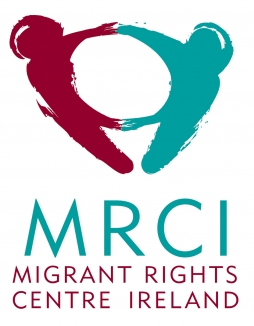Protect Minimum Wage
Published: Wednesday, April 28, 2010

Cutting the minimum wage is not the answer
A flawed assumption prevails within business, media and political circles that cutting the minimum wage would somehow assist economic recovery and improve competitiveness. For starters this approach will not help create employment. Much of the work undertaken by minimum wage earners is considered to be in low productivity sectors and it is not these jobs that has traditionally driven competitiveness or fuelled growth.
In addition minimum wage earners only account for about 5% of those employed. Because so few are on the minimum wage it is highly unlikely that reducing it would have any significant impact except for the workers and their families trying to survive on an income that places them in the category of the 'working poor'.
Another argument against cutting the minimum wage is that those on low incomes spend their money not like those with higher incomes who tend to save. We are being told daily that this economy needs spenders not savers.
More importantly, many people on minimum wages are doing socially valuable work such as caring; jobs that keep families and communities together. The market does not value or reward this work and reinforces why they need to be protected. After all the minimum wage was introduced in the first place in recognition of how vulnerable these workers are. This vulnerability has not disappeared but has been exacerbated in recent times.
Let's remember too that minimum wage workers have already seen a cut in their income. They have also been subjected to the 2% pension levy introduced in 2009. In reality a person working 40 hours a week earning €8.65 per hour can expect to earn approx €335 per week. This amounts to around €17,500 per year. I say 'her' because most minimum wage earners are after all women.
In effect those who advocate for a cut to the minimum wage are also advocating towards pushing vulnerable people deeper into poverty. In a supposedly civilised, democratic society surely this is the opposite direction we should be going in? Logic would suggest that many of these people are more likely to end up on social welfare and in turn will cost the state more.
We are now a society of extremes with an unsustainable gap between the incomes of the very rich and the very poor. The disconnect between those who have or had too much and those who have too little is clearly evident in the increasingly polarised and divided society Ireland has become. Most ordinary people know that they did not spend their way through the boom or have excessive and extravagant lifestyles despite this being the mantra from certain quarters. Attempting to cut the wages of workers who are among those who benefited least during this period, has to be one of the most cynical and insulting proposals to surface in recent times.
It also begs the question why so much energy is given to this question of cutting the minimum wage but practically no political appetite evident for reigning in high pay. Surely it is at this level that most savings could be made. Given the gross levels of income inequality that has prevailed and the damage this has caused to society would it not be in our collective interest to restore some balance to the income continuum.
Why should a person who has recklessly gambled pension funds be worth over €150,000 per year while a woman caring for children with special needs be only worth €17,000 per year? And is there not a growing realisation globally that the low wage model pursued by Western economies greatly assisted in causing the crisis in the first place?
Our government must resist all and every effort by vested interests to strip away minimum statutory protections for the low paid. I think most people would welcome instead a serious effort to rebalance incomes starting at the top end.
By Siobhán O' Donoghue
Siobhán is a Community Worker who is currently Director of the Migrant Rights Centre Ireland www.mrci.ie. She is Chairperson of the Community Workers Cooperative www.cwc.ie and is active in the Community Platform. She is also involved in Is Feidir Linn, a group who has developed a manifesto for an alternative model of economic and social development and who are currently working towards establishing an alternative social movement http://isfeidirlinn.ning.com
